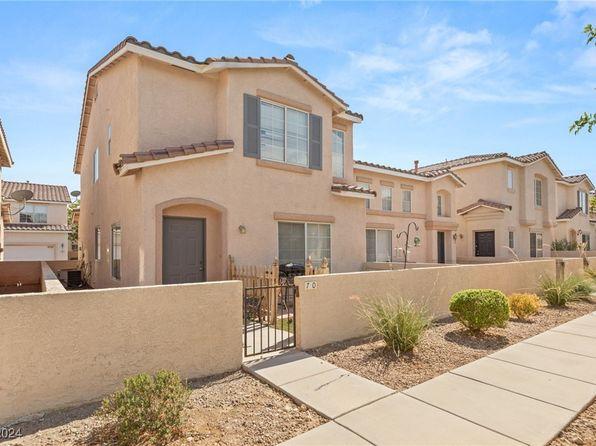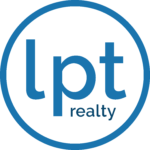Welcome to the dazzling world of Las Vegas, a city synonymous with bright lights, endless entertainment, and now, a vibrant real estate market. As the allure of the Strip captivates visitors from around the globe, more individuals are discovering the potential of calling this desert oasis home. Whether you’re drawn by the warm climate, the dynamic lifestyle, or the promise of a thriving community, navigating the intricacies of the Las Vegas residential home sales landscape can seem daunting. In this complete guide, we’ll unravel the complexities of buying and selling homes in this unique market, providing you with essential insights, expert tips, and valuable resources to make informed decisions. Whether you’re a first-time homebuyer, a seasoned investor, or simply curious about the latest trends, join us as we explore everything you need to know to successfully navigate the exhilarating realm of Las Vegas residential real estate.
Understanding the Las Vegas Housing Market Dynamics
The Las Vegas housing market is characterized by a unique blend of factors that influence its dynamics, making it essential for potential buyers and investors to understand these components. One of the most significant elements is supply and demand. With an influx of new residents drawn by employment opportunities and favorable living conditions, the demand for residential homes consistently rises. However, fluctuations in inventory levels can lead to price adjustments, creating both challenges and opportunities for buyers and sellers alike. Understanding these trends can help in making informed decisions.
Another important aspect of the Las Vegas housing market is seasonal trends that can affect sales performance. Typically, home sales peak during the spring and summer months, while the fall and winter seasons may experience a slowdown. This cyclical nature of the market is influenced by various factors, including weather conditions and holiday schedules. Buyers need to be aware of these seasonal shifts when planning their purchase or sale, as timing can play a critical role in negotiating prices. Analyzing local economic indicators, such as employment rates and population growth, can provide valuable insights into the future trajectory of the market.

Essential Factors Influencing Home Prices in Las Vegas
When considering the dynamics of the Las Vegas real estate market, several essential factors play a pivotal role in determining home prices. Location remains a key influence; neighborhoods such as Summerlin and Henderson are often associated with higher prices due to their amenities and quality of life. Additionally, the economic landscape significantly affects home values, with job growth in sectors like hospitality, technology, and healthcare elevating demand for housing. Interest rates also impact buyers’ purchasing power; lower rates generally stimulate buying activity, driving prices upwards. Other factors include the state of the housing supply, where a limited inventory can lead to bidding wars, further inflating prices.
Another crucial aspect is the seasonality of the market. Historically, home sales tend to peak in the spring and summer months, which means prices can be higher during these periods due to increased competition among buyers. Moreover, demographic trends, such as the influx of millennials seeking their first homes or retirees looking for a second residence, can shift demand and influence price trajectories. Local government policies regarding zoning and development can also affect supply and desirability. Consider the following table summarizing these factors:
| Factor | Impact on Home Prices |
|---|---|
| Location | Higher demand in desirable areas boosts prices |
| Economic Conditions | Job growth increases buying capability |
| Interest Rates | Lower rates can lead to higher prices |
| Housing Supply | Limited availability drives up competition |
| Seasonality | Spring/Summer lead to heightened sales and prices |

Navigating the Buying Process: Tips for Homebuyers
When embarking on the journey of purchasing a home, staying informed is essential. Begin by setting a clear budget that considers not only the price of the home but also additional costs like closing fees, property taxes, and maintenance. Engaging with a knowledgeable real estate agent can offer invaluable insights into local market trends and help you navigate the complexities of home-buying. Be sure to conduct thorough research on the neighborhoods you’re interested in, as factors like school quality, amenities, and future development can significantly influence your decision.
Additionally, it’s vital to keep an open line of communication with your lender. Understanding the available financing options can streamline your buying process. As you hunt for your ideal property, create a checklist of must-have features versus those that are merely nice-to-have. Prioritizing your needs can save time and prevent decision fatigue. Consider the following key aspects:
- Location: Proximity to work, schools, and public transportation
- Size: Number of bedrooms and bathrooms
- Condition: Age of the property and any necessary repairs
- Neighborhood: Safety, community vibe, and local amenities

Maximizing Your Investment: Selling Strategies for Las Vegas Homes
When it comes to selling your Las Vegas home, implementing effective strategies can significantly increase your return on investment. Begin by enhancing your property’s appeal through strategic staging. This involves arranging furniture and decor in a way that showcases the home’s best features, making it more attractive to potential buyers. Additionally, consider investing in minor renovations such as fresh paint or updated fixtures which can create a lasting impression without breaking the bank. Don’t forget to leverage the power of photography; professional-grade images can depict your property in its best light, drawing more interest online and in listings.
Marketing plays a crucial role in your sales strategy. Utilize a mix of traditional and digital outlets to reach a broader audience. Consider these effective marketing channels:
- Social Media Advertising: Use platforms like Facebook and Instagram to target specific demographics.
- Virtual Tours: Offering virtual walkthroughs can attract tech-savvy buyers who prefer browsing from home.
- Open Houses: Hosting an open house event can create a buzz and allow buyers to experience the space firsthand.
Furthermore, an attractive listing price can make all the difference in your selling strategy. Research comparable homes in your neighborhood and consider consulting with a real estate professional to set a competitive yet realistic price. Keep in mind that a well-timed listing, especially in Las Vegas’s vibrant real estate market, can lead to faster sales and potentially higher offers.
Q&A
Las Vegas Residential Home Sales: A Complete Guide – Q&A
Q: What is the current state of the residential home sales market in Las Vegas?
A: The Las Vegas residential home sales market has recently shown signs of resilience. While the pace of sales may fluctuate due to market conditions, the demand remains robust, particularly for single-family homes. Various factors, including job growth, tourism, and lifestyle appeal, contribute to the ongoing interest among buyers and investors.
Q: What types of residential properties are most commonly found in Las Vegas?
A: Las Vegas offers a diverse range of residential properties, from condominiums and townhomes to sprawling single-family homes and luxury estates. Each neighborhood boasts its own unique charm, catering to different lifestyles, whether you prefer the fast-paced energy of the Strip or the tranquil ambiance of suburban communities.
Q: How do the prices of homes in Las Vegas compare to the national average?
A: Home prices in Las Vegas often align with or are slightly lower than the national average, presenting opportunities for buyers looking for value. However, prices can vary widely based on location, property type, and amenities, making it essential for potential buyers to research specific neighborhoods and their market trends.
Q: What factors should buyers consider when purchasing a home in Las Vegas?
A: Buyers should consider a variety of factors, including location, local amenities, property condition, and market trends. Additionally, understanding the unique aspects of Nevada’s real estate laws and regulations is crucial, as well as being prepared for the competitive nature of the market.
Q: Are there any unique challenges faced by homebuyers in Las Vegas?
A: Yes, one unique challenge is the rapid pace of the market. Homes can receive multiple offers in short timeframes, which may compel buyers to act quickly. Additionally, fluctuating interest rates and the potential for seasonal market variations can influence buying decisions.
Q: What financing options are available for buyers in Las Vegas?
A: Buyers in Las Vegas have a range of financing options, including traditional mortgages, FHA loans, VA loans, and other specialized programs. It’s advisable for buyers to consult with a mortgage professional to explore what financing options best suit their financial situation and goals.
Q: How can sellers prepare for the Las Vegas home selling process?
A: Sellers should focus on enhancing their property’s appeal through staging, necessary repairs, and effective marketing strategies. Comparing similar properties in the area can help set an appropriate asking price, and enlisting the help of a knowledgeable real estate agent can streamline the selling process.
Q: What are the benefits of working with a real estate agent in Las Vegas?
A: A real estate agent brings valuable market insights, negotiation expertise, and a robust network of resources to the table. They can help navigate the complexities of buying or selling property, ensuring that clients make informed decisions and ultimately achieve a successful transaction.
Q: What are some up-and-coming neighborhoods in Las Vegas for residential buyers?
A: Some of the up-and-coming neighborhoods in Las Vegas include Summerlin, Henderson, and the Arts District. Each area offers distinct characteristics, from vibrant communities with new developments to artsy locales revitalizing the urban landscape, appealing to a wide range of buyers.
Q: How can future economic trends impact Las Vegas residential home sales?
A: Future economic trends, such as job growth, tourism fluctuations, and changes in the rental market, can significantly impact residential home sales. As the economy expands or contracts, buyer interest and affordability may shift, influencing market dynamics and home values in the long term.
This Q&A aims to provide potential buyers and sellers with a foundation of knowledge for navigating the Las Vegas residential home sales market. Whether embarking on the journey of homeownership or preparing to sell, understanding the landscape is key to making well-informed decisions.
Future Outlook
As we conclude our comprehensive guide to Las Vegas residential home sales, it’s clear that the vibrant landscape of this bustling city offers a plethora of opportunities for both buyers and sellers. Whether you’re drawn to the glitz of the Strip or the serenity of suburban living, understanding the nuances of the market can empower you to make informed decisions.
From the initial stages of searching for the perfect property to navigating negotiations, this guide has aimed to equip you with the knowledge necessary to navigate the dynamic terrain of Las Vegas real estate. As you embark on this exciting journey, remember that the key to success lies in preparation, research, and tapping into the right resources.
In this ever-evolving market, staying informed is essential. As trends shift and opportunities arise, continue to seek out the insights and information that will keep you one step ahead. Whether you’re a seasoned buyer or a first-time seller, the enchanting allure of Las Vegas awaits. Happy house hunting!


